Saleena Karim's Blog, page 8
March 3, 2012
Get Systems for free … again!
I know what you're thinking. This is deja vu. Wasn't there a giveaway of Systems just a week ago?
 Yes there was. But this morning I learned that Smashwords is running their annual "Read an ebook" promotion from tomorrow until next Sunday (4-10 March 2012), which means my book will be free there for a week. So if you missed it last time, you can get it now.
Yes there was. But this morning I learned that Smashwords is running their annual "Read an ebook" promotion from tomorrow until next Sunday (4-10 March 2012), which means my book will be free there for a week. So if you missed it last time, you can get it now.
Download details (from tomorrow)
1) Click and go to my book's page at Smashwords
2) Scroll down and pick a format to download (careful to select a full book link, not the sample)
3) At checkout, apply the code: RE100
And you're done! Plus, don't forget you can also win a signed paperback if you write a review, as per the rules here
What genre is your novel?
I wasn't planning to post anything at all this week after having posted five entries last week – but this one's been on my mind since even before I published Systems. How do you classify a novel that for some reason or other can't fit into one specific – and known – category?
Whilst it seems as though there are a lot of genres for fiction, for novels like mine there are starkly few genres to choose from. I popped over to Amazon and reminded myself of the options I had to choose from when it came to classifying Systems. They included:
Literary
Mystery, Thriller & Suspense
Science Fiction and Fantasy
Religion & Spirituality (though this would encompass both fiction and non-fiction)
And in my case, that was about it. There are scores of categories on Amazon, and almost 20 of them are under 'Literature & Fiction' but only these come close. (Actually, I had a similar problem with SJ2. But it was still easier than Systems).
I didn't want to pick Literary because my fiction is really styled more commercially. Mystery, Thriller & Suspense was reasonably accurate, but the sci-fi element is louder. And as for Religion and Spirituality … that, I felt, gave off the wrong vibe. I prefer the unofficial genre 'Visionary' or 'Metaphysical', maybe even 'Philosophical', but these options just weren't there. And 'Speculative' (again, not there) … isn't that another way of saying 'science fiction'?
So, for now I've stuck with classifying it as science fiction, albeit reluctantly. At various sites – depending on whom I'm addressing – I've also referred to it as 'Islamic science fiction' – though that's a technicality and in reality the fiction is neither overtly religious nor does it aim at a specific faith, even if it is inspired by the Islamic worldview in philosophical terms.
But, there is an upside to this conundrum. I'm beginning to run into other authors who are calling for a genre to include 'visionary' elements without lumping them under either science fiction or fantasy. So, at least I'm finding some new fiction to read.
Have you self-published a novel? How did you decide what category it best fits into ?
Update: Five minutes after posting this, I found the 'metaphysical' category on Amazon, as a subsection of 'Genre Fiction'. Go figure.
March 1, 2012
Reminder (signed paperback draw)
Thanks to all those who downloaded a copy of Systems during the ebook giveaway last week. As a reminder, if you post a review to Amazon or any other major bookstore online before 17 March 2012, you'll be entered into a draw to win a signed paperback copy. This draw is open worldwide.
February 26, 2012
How Secular Jinnah inspired Systems Part 4: Reversal
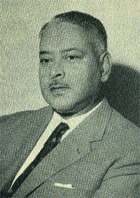
Chief Justice Cornelius. Public domain image.
[I] am slowly beginning to understand what is built into the Constitution of Pakistan, in the way of political obligation … I have learnt that a non-Muslim can only be a full citizen of Pakistan if, on the secular side, he conforms to the requirements of the Objectives Resolution, read with the first 8 Articles, that is Parts I (the Republic of Pakistan) and II (Fundamental Rights and Principles of Policy). So far as I can see, at present, this is entirely possible, and would be easy, if there were some formulation of the basic principles contained in the Scriptures of Islam, in regard to equality, tolerance, social justice etc.
These are the words of Alvin Robert Cornelius (1903-1991), one-time Chief Justice of Pakistan, in a personal letter dated July 1965. A practising Christian, he was one of the many people who supported the Pakistan idea. He was also amongst the few who understood the content of the Objectives Resolution as a statement of universal human ideals and one that made great promises to all its citizens regardless of caste and creed. But, he said, these ideals hadn't been spelled out.
AN OVERLOOKED ISSUE
And Cornelius wasn't the only person to say this. Two other Pakistanis (Mian Iftikharuddin and PD Bhandara, father of MP Bhandara) also made similar remarks in criticism of Pakistan's constitution-making body during Pakistan's fledgling years. All three of these individuals stated in no uncertain terms that some fundamental principles had not been accounted for. Iftikharuddin complained in 1949 that the Objectives Resolution didn't …
… incorporate those principles which will make real democracy possible …
– and PD Bhandara said in 1954:
The very essence of an Islamic Constitution which is brevity and simplicity is conspicuous by its absence. … In the process of evolution gained by experience, I trust our Constitution will be remodelled to conform more to the tenets of Islam …
But their words went unheeded, and with time the Objectives Resolution became an issue of enormous contention.
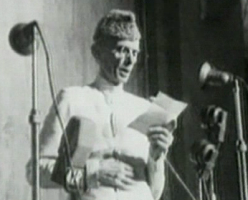
MA Jinnah on 14 August 1947, and not 11 August as shown on Wikipedia. Image from my personal collection.
Critics of the Objectives Resolution see it as some sort of backdoor to theocracy, even though a religious state was the last thing on the minds of those who penned it. MP Bhandara's 11 August 1947 bill (introduced in 2006) was an attempt to insert one of Jinnah's most famous speeches on civil equality alongside the Objectives Resolution in the constitution. Bhandara said the speech would act as an 'ideological balance'. Ironically, unlike his father, MP Bhandara had actually misinterpreted the Objectives Resolution and his bill (his version of it, anyway) was only going to make things worse by causing a conflict. I tried to tell him this, but I don't think he heard me.
THREE WORDS
All this made me think of the theorem. By now I saw the connection to the three words in Iqbal's Reconstruction – the three basic ideals of equality (justice), solidarity (unity), and freedom (liberty). That passage of Iqbal became my muse. Even Jinnah had been subconsciously drawn to these three ideals, which was why he quoted the French equivalent liberté, égalité, fraternité (liberty, equality, fraternity) several times during those last few months of his life as Pakistan's first Governor General.
By 2009, a publisher in the UK and another in Pakistan had both already offered me a contract for SJ1's revised edition. They expected me to get it to them in a few weeks. It took me 14 months, and thankfully both publishers were very patient with me. By the time it was finished, SJ2 was a brand new book containing new and original research, and only parts of it coincided with SJ1.
LEFT UNSAID
 In SJ2, I briefly mentioned this 'missing' element of Pakistan's constitution, and even said that my old appendix (imported from SJ1 and improved in SJ2) contained the very same 'core principles' of the Quran that could help complete the constitutional work begun back in 1949. What I didn't mention – though I discussed it with one or two people including a prominent Pakistani retired senior judge – was that I also had an idea for a bill that could introduce the same ideals as those listed in my old appendix, the source of the theorem. To my mind the introduction of binding, interconnected values would not only strengthen and clarify the promises made in the Objectives Resolution, but would also put an end to the misinterpretation of what it contains.
In SJ2, I briefly mentioned this 'missing' element of Pakistan's constitution, and even said that my old appendix (imported from SJ1 and improved in SJ2) contained the very same 'core principles' of the Quran that could help complete the constitutional work begun back in 1949. What I didn't mention – though I discussed it with one or two people including a prominent Pakistani retired senior judge – was that I also had an idea for a bill that could introduce the same ideals as those listed in my old appendix, the source of the theorem. To my mind the introduction of binding, interconnected values would not only strengthen and clarify the promises made in the Objectives Resolution, but would also put an end to the misinterpretation of what it contains.
And what happened after that? Well, the idea remains an idea. In the end, I made it – the theorem, that is – 'real' only in my fictional universe. But there it makes for useful commentary on the human condition … and it's my way of paying homage to the Pakistan idea.
This is the final part. Earlier posts in this mini-series:
Introduction … Pt 1: The first book …
Pt 2: Libredux … Pt 3: The missing principle
(Some images in this post are copyrighted)
February 24, 2012
How Secular Jinnah inspired Systems Part 3: The missing principle
As SJ1's readership grew, so did the requests for a sequel. At first I only intended to release a revised edition and call it SJ2. And yet, all sorts of new information kept cropping up on the Pakistan story. My minor list of revisions soon became a monster file of notes which couldn't be organised except in the form of a new book.
EVOLUTION
Then between late 2006 and mid-2007, two things happened to affect both the as-yet unwritten SJ2 and Systems. First, I came up with the 'theorem' for the novel in a kind of eureka moment, though this had been building up for some time. As I mentioned in Part 2, before this point my 'ideal' system model for the fictional Systems Experiment had been nothing more than a name. This was because I'd been semi-consciously aware that a fixed system was problematic. If I described the features of this system in the fiction in detail, it might be set in stone and treated as some fixed ideology. Fictional or not, I'd instinctively known I wanted to avoid that.
 The fact that an ideal system is never fixed (because evolution itself is a Natural Law) now registered in my conscious knowledge for the first time. This was thanks largely to my in-depth study of the Pakistan story and in particular the thoughts of Jinnah and Iqbal (in that order. Jinnah's intelligence and acute ethical awareness remains greatly under-appreciated even among the experts). And so all the pieces came together. The idea (it had no name at first) was very simple and based on common sense. If you assume that everything in the universe has a common starting point of some sort, and you assume that the laws of nature also have the same starting point, then all ideals have the same starting point too … in principle. And just as the universe – with its zillions of atoms and subatomic particles and other seemingly separated bits and pieces called gravity and black holes and dark matter and space and time – actually remains one in principle, then all universal ideals must really be aspects or derivatives of a single common ideal.
The fact that an ideal system is never fixed (because evolution itself is a Natural Law) now registered in my conscious knowledge for the first time. This was thanks largely to my in-depth study of the Pakistan story and in particular the thoughts of Jinnah and Iqbal (in that order. Jinnah's intelligence and acute ethical awareness remains greatly under-appreciated even among the experts). And so all the pieces came together. The idea (it had no name at first) was very simple and based on common sense. If you assume that everything in the universe has a common starting point of some sort, and you assume that the laws of nature also have the same starting point, then all ideals have the same starting point too … in principle. And just as the universe – with its zillions of atoms and subatomic particles and other seemingly separated bits and pieces called gravity and black holes and dark matter and space and time – actually remains one in principle, then all universal ideals must really be aspects or derivatives of a single common ideal.
I also remembered my old issue with that SJ1 appendix – the two irreducible ideals of justice and freedom. As it turns out, the two really are irreducible for reasons I won't explain here, but whilst we often treat them as separate and ultimately incompatible, they really are not. In combination they represent one ultimate principle. I would later call this the Single Source Principle (though this part of the theorem was never explained in detail in the novel). Of course to many people it's better known as Oneness, or Unity.
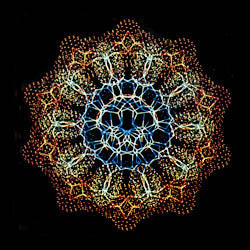
Computer-generated cross section of DNA, from a top-down view.
THE THEOREM
At any rate, I finally had the essence of a testable 'theorem' (for the fiction, at least). As I put it in Systems:
… justice and liberty are the only universal ideals; all other ethical principles are either derivatives or aspects of these ideals. But justice and liberty are themselves interconnected because they come, just like the physical universe and every law of nature, from a single source.
It seemed natural to call this relationship cohesive ethics; like a kind of 'theory of everything' for universal ideals. (I later tacked on the word 'theorem' in the novel for effect). To my mind, any social system built around the ideals of both justice and liberty together would be acting in harmony with the Natural Order and so was bound to succeed. Its exact structure – the minor details – wouldn't matter. What would matter was its type … what it aimed for … its spirit … its ethical DNA. And by virtue of a beautiful accident, I already had the perfect name for this type of system: Libredux.
… a social system with no fixed rules, except for one binding principle which could not be broken under any circumstances.
Now I had almost everything I needed for the novel. But it still wouldn't be finished for another five years.
CONSTITUTION
Second, in around May 2007 I had some interesting correspondence with the late Pakistani parliamentarian MP Bhandara, which led to my inadvertently becoming involved with his constitutional bill to make the 11 August 1947 speech of MA Jinnah a 'substantive' part of Pakistan's constitution. Again, details aren't important (and the whole story is in SJ2's appendix in any case). But that experience showed me just how important a strong constitution is. It also alerted me to the fact that something extremely important might be missing in Pakistan's constitution – something that was leaving its fundamental sections open to misinterpretation.
The final part, Reversal, will be posted on Sunday.
Earlier posts in this mini-series:
Introduction … Pt 1: The first book … Pt 2: Libredux
(Some images in this post are copyrighted)
February 22, 2012
How Secular Jinnah inspired Systems Part 2: Libredux
A couple of years before SJ1, I was in the middle of a personal journey that was transforming my way of thinking. Details are not important, but the result of it was that I'd learned some incredible things about the untapped potential that is present within each and every one of us. And inevitably this found expression in the novel. To an extent I was using the novel as a space to record my developing ideas, albeit in embryonic form.
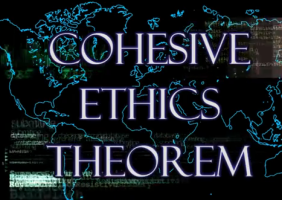
Snapshot from Systems trailer
At this time I was thinking about the possibility of an ideal society, an environment that enables us all to unlock that potential. What's really stopping us from creating a civilization that resembles something out of Star Trek or Iqbal's fictional world 'Marghdeen' in Javid Nama?
Like many Pakistanis, I'd heard about those who genuinely believed that part of the idea behind Pakistan was to create a society that would aim for the highest of ideals. At this point I didn't know enough about it to say I had any sort of opinion about this. But it was an intriguing concept. In Pakistan of course, it hasn't been realised to date, even if it continues to capture the imagination of Pakistan's youth.
THE SYSTEMS EXPERIMENT
 Meanwhile my novel was developing slowly. I had an idea for an experiment that would simulate history and test social systems, including an 'ideal' one. Computer simulations are commonly used for predicting weather patterns and observing changes in ecosystems. To my mind a social system simulation seemed perfectly feasible – more feasible, than say, trying to set up an experimental ideal society within an existing country where all sorts of practical obstacles would get in the way. A simulation would provide a controlled environment and in fact would be a more reliable test. In the novel, the Systems Experiment would prove that an ideal society was possible, and then the bad guys would go and ruin it all … as they always do.
Meanwhile my novel was developing slowly. I had an idea for an experiment that would simulate history and test social systems, including an 'ideal' one. Computer simulations are commonly used for predicting weather patterns and observing changes in ecosystems. To my mind a social system simulation seemed perfectly feasible – more feasible, than say, trying to set up an experimental ideal society within an existing country where all sorts of practical obstacles would get in the way. A simulation would provide a controlled environment and in fact would be a more reliable test. In the novel, the Systems Experiment would prove that an ideal society was possible, and then the bad guys would go and ruin it all … as they always do. 
The only problem was I didn't know how to test an ideal system when I couldn't even describe it. 'Never mind,' I thought. 'It's fiction anyway.' Still, I did come up with a name for it: Libredux. The word means 'return to liberty and justice', since lib means both 'liberty' and 'justice' (the latter by virtue of the Latin libra – literally, 'balance'). That was as far as I got with the idea at this stage.
THREE MAGIC WORDS
Around this time I also happened to acquire a copy of Iqbal's Reconstruction of Religious Thought in Islam. I was awed by this book, which was the first truly philosophical piece on Islam that I had ever seen. The passages that interested me most were those on the 'unity of God' – called Tauheed in the Quran. Tauheed is the philosophical basis of the so-called 'Islamic worldview' – which treats matter and spirit as one (and not two separate things as we do in the West). One of my favourite passages from the book was:
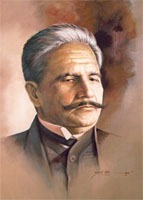
Dr. Iqbal. Courtesy allamaiqbal.com
The essence of 'Tauhid' as a working idea is equality, solidarity, and freedom. The State, from the Islamic viewpoint, is an endeavour to transform these ideal principles into space-time forces, an aspiration to realize them in a definite human organization.
I quoted this and similar passages in SJ1 to try and explain the idealism that motivated many supporters (not all of them Muslim) of the Pakistan idea. But for a very long time, I never saw the connection between this passage and my word, libredux. Nor did anything click when I wrote that appendix and could only list freedom and justice as the simplest ideals. I didn't even connect that to the word libredux. (I'm a bit slow sometimes.) The obvious reason was that since I hadn't come to the theorem yet – and since I also hadn't realised the final value of 'unity' (solidarity) yet – I couldn't see what was right in front of me.
The next part, In reverse (working title) will be posted this Friday.
Earlier posts in this mini-series: Introduction … Part 1: The first book
(Some images in this post are copyrighted)
February 20, 2012
Systems ebook giveaway – 48 hours only
On Thursday through Friday (23-24 Feb 2012, California time, i.e. Pacific Time Zone, GMT -8 hours*), the ebook version of Systems will be available for free download at Smashwords. I'll be supplying a coupon at this blog that you can use to download from there. You're also free to share the coupon with your friends. But this is a limited offer for just 48 hours.
CHANCE TO ALSO WIN A PAPERBACK
Anyone who downloads and reviews the novel at Amazon within three weeks after the free giveaway will be entered into a draw to win a signed paperback (of course, you'll have to send me an email to let me know you've done it – editor [at] cyberblurb [dot] co [dot] uk). If you also copy your review to Goodreads, or Barnes & Noble, or WHSmith, or your blog, or wherever, you'll be entered again for each subsequent copy of your review. So if you post your review in two places you'll double your chance of winning.
ALREADY BOUGHT THE BOOK?
Review and email me anyway. If you enter and win, you can always give your first copy to someone else.
ALTERNATIVE PRIZE FOR NEG REVIEWERS
Even if you dislike the novel and post a negative review, you can still enter the draw for an alternative prize (after all, I don't want to encourage dishonest reviews). If you're drawn, I'll send you a gift voucher (worth the equivalent of Systems) to spend on whatever you like. And that of course means I'll draw again to give the paperback to someone else.
Couldn't be fairer than that, could I?
Look out for the coupon code this Thursday!
I think I've covered it, but if you have any questions, post them in the comments.
*(And no, I'm not based in California.  This is just Smashwords' time zone.)
This is just Smashwords' time zone.)
February 19, 2012
How Secular Jinnah inspired Systems Part 1: The first book
(If you haven't seen it already, read the introduction to this mini-series here)
 The first book I ever started – long before even SJ1 – was fiction. For a long time I had notions about the emotional content, and that it should be an epic. I even developed the characters, and knew that the story would contain a quest for a valuable item, but otherwise there was no solid plot. It refused to come together because it lacked focus. The thing had a beating heart, but no brain. Or maybe it was the other way round.
The first book I ever started – long before even SJ1 – was fiction. For a long time I had notions about the emotional content, and that it should be an epic. I even developed the characters, and knew that the story would contain a quest for a valuable item, but otherwise there was no solid plot. It refused to come together because it lacked focus. The thing had a beating heart, but no brain. Or maybe it was the other way round.
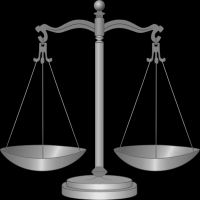
Scales, representing justice, were originally going to appear on the cover of 'Systems'
Whilst I said to friends that I was writing a novel, my only published writing was in the form of Urdu-to-English translations of articles and a few literary columns. Then suddenly in 2004 through my translation work, I happened to uncover what would later be called the 'Munir quote'. This was the start of Secular Jinnah (2005), and my journey learning about the Pakistan idea. Funnily enough I didn't even like politics (and still don't!), but as I soon discovered, the Pakistan story was more than just political history. It wasn't just another redrawing of the world map. It had a higher, noble idea at its core that truly resonated with me. I will explain why in the next post.
GERM OF AN IDEA
In mid-2005, I was finishing the final draft of SJ1 and putting in a few appendices. The book was short and didn't explain anything about Pakistan's founding history in much detail, but it had discussed the universal principles of the Quran that inspired so many Muslims during the Pakistan movement and which they expected to see become a reality in their new state. For the second appendix item I wanted to create a short list of these principles, about a page long, of the universal human rights that are also mentioned in the Quran. But I wanted to stick to basic principles, i.e. the ideals, in part because this is what the Quran itself does, and also because Jinnah had placed emphasis on the same basic ideals.
So I got thinking about human rights.
Freedom of conscience or religion
Freedom of speech
Equality before the law
Right to a fair trial
Equality of the sexes
 … And so on. But I soon realised that most of these items could be grouped together by their corresponding ideal. The first two of the above list could be grouped together under the ideal value 'freedom', and the latter three under 'justice'. I also recall thinking that many (if not most) of these and similar principles could be classified both under freedom and justice. In fact these two seemingly separate ideals are ultimately united, but I hadn't recognised this yet. Nor did I know that this was the germ of the idea for what would later become the Cohesive Ethics Theorem.
… And so on. But I soon realised that most of these items could be grouped together by their corresponding ideal. The first two of the above list could be grouped together under the ideal value 'freedom', and the latter three under 'justice'. I also recall thinking that many (if not most) of these and similar principles could be classified both under freedom and justice. In fact these two seemingly separate ideals are ultimately united, but I hadn't recognised this yet. Nor did I know that this was the germ of the idea for what would later become the Cohesive Ethics Theorem.
And how many ideals were there? Try as I might, I could only think of two: justice and freedom.
The next part, Libredux, will be posted on Wednesday.
February 17, 2012
How Secular Jinnah inspired Systems: Introduction
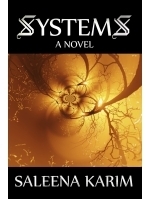 Since starting this blog, I've been posting a little bit about writing Systems, and only a tiny bit (one post thus far) about its core. I've been reluctant to write extensively on the core because I didn't want the formal stuff to clutter this blog and give people the wrong idea about the story - which is a lot more entertaining, I assure you. Yet something hasn't felt quite right.
Since starting this blog, I've been posting a little bit about writing Systems, and only a tiny bit (one post thus far) about its core. I've been reluctant to write extensively on the core because I didn't want the formal stuff to clutter this blog and give people the wrong idea about the story - which is a lot more entertaining, I assure you. Yet something hasn't felt quite right.
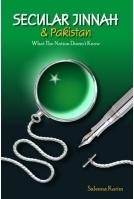 Everyone who knows me as a writer identifies me with Secular Jinnah. My mailing list is made up almost entirely of folk who are interested in Pakistan's founding history. To them, Systems has no connection to my other titles.
Everyone who knows me as a writer identifies me with Secular Jinnah. My mailing list is made up almost entirely of folk who are interested in Pakistan's founding history. To them, Systems has no connection to my other titles.
BENEATH THE SURFACE
But there is a connection, even if it's not immediately obvious to my readers (and wouldn't be noticed at all by most non-Pakistani readers). And I know I haven't exactly been helping either. In my original announcement email for Systems to my list in early December 2011, I said that 'any resemblance to the Pakistan idea' was 'entirely coincidental'. Now that was a tongue-in-cheek joke coming from a conversation I was having with a friend at the time, but I think they took it seriously. Even later on, after I clarified that actually there is a connection, they didn't buy it. Perhaps they thought I was just trying to sell the novel. I wasn't.
Recently at another writer's blog I told a fellow writer that my non-fiction and fiction were virtually unconnected. I was telling the truth, insofar as there's not an obvious connection on a surface level. But it's not true at the core. Not even remotely. Systems is social commentary in the broadest sense, and its core is very much inspired by the discoveries I made when I was writing about the Pakistan idea. In short, Systems simply wouldn't exist without Secular Jinnah. Funnily enough, I even mentioned this on the description page for Systems on Amazon.com a few weeks ago but didn't carry that point over to here. So it's about time I did. Of course, I do love writing about storytelling and pencraft, and I will continue to do so. But I must follow my own advice and try to reveal the core of this novel.
BACK TO THE BEGINNING
So starting this Sunday I'm starting a mini-series about the story behind Systems. Doing so will help me achieve two things at once. One, I'll finally help my readers understand what I meant about the connection to the Pakistan idea. Two, it'll be easier for me to introduce the 'theorem' of the novel (among other things) by explaining exactly where it came from.
So you won't miss it, subscribe (see form on the right side of this page) if you haven't already done so.
Otherwise, watch this space.
February 15, 2012
Systems reviewed at Readers Favorite
 Systems has just received its first review at ReadersFavorite and received the top rating of 5 stars. Here are a couple of excerpts.
Systems has just received its first review at ReadersFavorite and received the top rating of 5 stars. Here are a couple of excerpts.
… a first-rate, suspenseful science fiction thriller
… believable characters who may or may not be the bad guys one minute or the next
… Brave people, risking their lives, take a stand against those in power
Read the full review here. Warning: it contains one or two spoilers!



